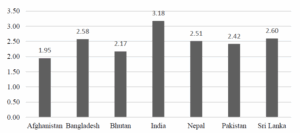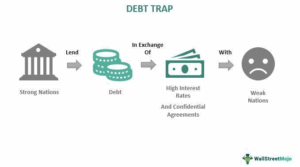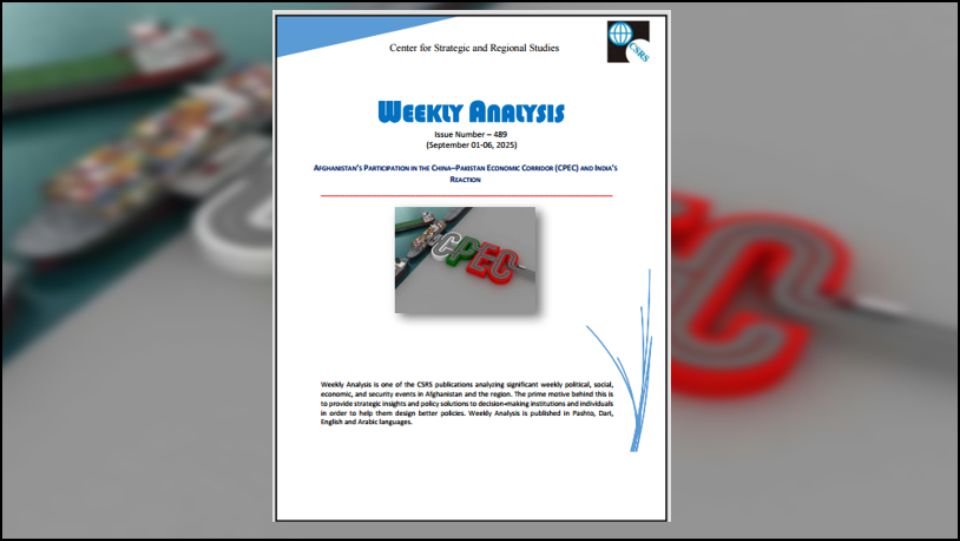By: Assoc. Prof. Abdul Saboor Mubariz
Note: Click here for the PDF file of this analysis.
___________________________________________________________________
In this issue:
-
- Afghanistan’s Participation in the China–Pakistan Economic Corridor (CPEC) and India’s Reaction
- The China–Pakistan Economic Corridor (CPEC)
- Afghanistan’s Participation in CPEC
- The Benefits of CPEC for Afghanistan
- The Risks of CPEC for Afghanistan
- Why India Opposes Afghanistan’s Participation in CPEC
- Conclusion
- Recommendations
- References
______________________________________________
Introduction
Following the establishment of the Islamic Emirate of Afghanistan, its foreign policy was declared to be primarily economy-centered, with efforts directed toward fostering regional connectivity within this framework. Amir Khan Muttaqi, the Foreign Minister of the Islamic Emirate, stated: “Our goal is to transform Afghanistan from a country traditionally confronted with security challenges into a hub of economic connectivity. The new realities on the ground also contribute to the success of this policy.” Since the Islamic Emirate’s return to power, political and economic relations between Afghanistan and China have significantly strengthened. China has formally recognized the ambassador of the Islamic Emirate of Afghanistan and initiated several economic projects in the country. Beijing seeks to link Afghanistan to CPEC; however, the recently strained and tense relations between the Islamic Emirate and Pakistan have posed an obstacle to this integration. To address this, China has sought to revive trilateral meetings among China, Pakistan, and Afghanistan—initiatives that began in 2017 in Beijing, followed by a second meeting in Kabul in 2018, and two subsequent virtual meetings in Islamabad that same year due to the COVID-19 pandemic. In this context, the fifth trilateral meeting—the first under the Islamic Emirate—was held in Islamabad in 2023, followed by the sixth in August 2025. The central topic of the most recent meeting was Afghanistan’s integration into CPEC, a development that prompted a strong reaction from India, which firmly opposed Afghanistan’s participation in the project. This raises several critical questions: Why has India objected to Afghanistan’s inclusion in CPEC? What benefits might Afghanistan gain from joining, and what potential risks or costs could it incur? These are the key questions this analysis seeks to address.
The China–Pakistan Economic Corridor (CPEC)
In 2013, China launched its international economic initiative known as the Belt and Road Initiative (BRI). This project aims to connect 65 countries and around 4.4 billion people, with the potential to generate an annual revenue of approximately 2.5 trillion USD. The BRI is structured around six major corridors:
- The China–Mongolia–Russia Corridor
- The New Eurasian Land Bridge
- The China–Central Asia–West Asia Corridor
- The Bangladesh–China–India–Myanmar Corridor
- The Indochina Peninsula Corridor
- The China–Pakistan Economic Corridor (CPEC)
CPEC, launched in 2015, is one of the flagship components of the BRI. It consists of multiple large-scale projects implemented by China in Pakistan, with an estimated value of around 62 billion USD. So far, China has invested roughly 25 billion USD under this framework. The main objective of CPEC is to support Pakistan’s economic development by investing in infrastructure, transport networks, and energy production. China’s investments through CPEC focus on five main areas:
- Development of Gwadar Port along with airports, hospitals, schools, and residential complexes.
- Energy projects, including coal, wind, hydro, and solar power plants.
- Expansion of transport infrastructure such as roads, highways, railways, and air transport.
- Establishment of Special Economic Zones (SEZs) and industrial parks.
- Construction of an 820-kilometer fiber-optic cable project, which will transform Pakistan into a digital hub.
According to a PwC report, Pakistan is projected to become the world’s 20th largest economy by 2030, with CPEC expected to create more than 2.3 million new jobs.
Afghanistan’s Participation in CPEC
China has repeatedly engaged in negotiations with Pakistani counterparts in an effort to include Afghanistan in the China–Pakistan Economic Corridor (CPEC). Beijing seeks to leverage Pakistan’s economic and diplomatic influence in Afghanistan, aiming to expand the bilateral economic corridor into a broader multilateral framework referred to as CAICAP (China, Afghanistan, Iran, Central Asia, and Pakistan). This proposal reflects China’s broader strategy to involve Afghanistan in the Belt and Road Initiative (BRI), of which CPEC is a central component. Should Afghanistan become part of CPEC, economic relations between Afghanistan and Pakistan would likely be strengthened, thereby deepening trade ties between the two countries. In May 2023, Chinese Foreign Minister Qin Gang visited Pakistan, where he held extensive discussions on CPEC with Foreign Minister Bilawal Bhutto Zardari, President Arif Alvi, and Chief of Army Staff General Asim Munir. During these talks, the Chinese Foreign Minister emphasized that ensuring security was indispensable for the implementation of CPEC and related projects. He specifically urged Pakistani authorities to provide protection for Chinese nationals working in Chinese companies engaged in Pakistan’s economic reconstruction. Similarly, at the sixth trilateral meeting among China, Pakistan, and Afghanistan, held in August 2025, the question of Afghanistan’s integration into CPEC was formally placed on the agenda, and substantive discussions were initiated in this regard. It must be noted, however, that such trilateral dialogues cannot be conclusive unless the ultimate decision-making authorities in both Pakistan and the Islamic Emirate of Afghanistan are directly involved. In Pakistan, final authority lies with the military establishment, while in Afghanistan it rests with the leadership in Kandahar (the Amir al-Mu’minin). Consequently, unless both the Pakistani military and the Emirate’s leadership in Kandahar approve Afghanistan’s participation, these meetings will remain inconclusive, and Afghanistan’s accession to CPEC will not be realized.
The Benefits of CPEC for Afghanistan
If Afghanistan were to join the China–Pakistan Economic Corridor (CPEC), it could gain several important benefits:
- Infrastructure Development
After decades of war, Afghanistan’s infrastructure is extremely weak, in many cases almost non-existent. Without proper infrastructure, trade, transit, and regional connectivity are impossible, since wide and standard roads, highways, and airports are essential. If Afghanistan lacks these facilities, neighboring countries will naturally look for alternative routes, which would isolate Afghanistan from regional projects. A 2018 World Bank study assessed transport facilities in South Asia and ranked the countries on a global scale. India received the highest regional score (3.18 out of 5), while Afghanistan scored the lowest (1.95 out of 5).  Globally, Afghanistan ranked 160th, highlighting the severe weakness of its transport infrastructure and the challenge this poses for regional connectivity.
Globally, Afghanistan ranked 160th, highlighting the severe weakness of its transport infrastructure and the challenge this poses for regional connectivity.  By joining CPEC, Afghanistan could attract Chinese investment in highways, airports, industrial zones, energy production, and railways—steps that would help rebuild its national infrastructure.
By joining CPEC, Afghanistan could attract Chinese investment in highways, airports, industrial zones, energy production, and railways—steps that would help rebuild its national infrastructure.
- Regional Connectivity
Participation in CPEC would give Afghanistan direct access to Gwadar Port. From there, it could reach the Arabian Sea and connect to other regional and international markets. Such access would be vital for Afghanistan’s trade and long-term economic growth.
- Expanded Trade and Transit Opportunities
Through CPEC, Afghanistan could become a hub for trade between Central Asia, China, Pakistan, and the Middle East. This would make it easier and faster for Afghan products—such as fresh fruits, minerals, carpets, and handicrafts—to reach regional markets.
- Job Creation
CPEC would bring various projects to Afghanistan, including infrastructure and other development initiatives. These would create significant employment opportunities for Afghans, addressing one of the country’s most pressing needs.
- Political and Security Gains
Joining CPEC could help Afghanistan break out of international isolation by becoming part of a larger regional economic framework that includes China, Pakistan, the Middle East, and Central Asia. This would strengthen Afghanistan’s role in regional cooperation. CPEC could also improve political relations between Afghanistan and Pakistan, which have often been strained and destabilizing for Afghanistan. Improved ties could contribute to greater stability. From a security perspective, Afghanistan’s inclusion in CPEC would encourage both China and Pakistan to help maintain stability in the country. For CPEC to succeed, Afghanistan must be secure, which means it would be in Pakistan’s direct interest to support peace and stability there. This dynamic could reduce Afghanistan’s vulnerability, especially since Pakistan has historically been linked to much of the insecurity inside Afghanistan.
The Risks of CPEC for Afghanistan
While joining the China–Pakistan Economic Corridor (CPEC) could bring benefits, it also carries certain risks for Afghanistan:
- Greater Dependence on Pakistan
Much of CPEC runs through Pakistani territory, meaning Afghanistan would heavily rely on Pakistan’s routes and especially on Gwadar Port. This dependence could increase Afghanistan’s vulnerability. Historically, whenever Afghanistan relied too much on Pakistan without alternative options, Pakistan used that dependence to exert pressure and impose its demands.
- Risk of Falling into China’s “Debt Trap”
China has often been accused of using debt as a diplomatic tool, financing major infrastructure projects in smaller countries through loans. When countries struggle to repay, China sometimes extends new loans, eventually trapping them in a cycle of debt and gaining influence over their resources and governance. A clear example in South Asia is Sri Lanka, which lost control of part of its territory due to debt. For Afghanistan, the CPEC would require massive infrastructure development, far exceeding the country’s financial capacity. If funded mainly by Chinese loans, Afghanistan could face the same debt risks—losing control over its economy and potentially even aspects of its sovereignty. 
- Renewed Regional Rivalries
Afghanistan has long been a victim of great-power rivalries, which have hindered its path to stability. India strongly opposes Afghanistan’s participation in CPEC. If Afghanistan joins despite this opposition, it could strain Kabul’s relations with New Delhi and reignite strategic competition between India and China, as well as India and Pakistan, inside Afghanistan—an outcome not in Afghanistan’s best interest.
Why India Opposes Afghanistan’s Participation in CPEC
India’s objections stem from three main concerns:
- Threat to India’s Territorial Integrity and Sovereignty
CPEC passes through Gilgit–Baltistan, a region India considers part of its own territory but which is currently administered by Pakistan. From New Delhi’s perspective, Afghanistan’s joining CPEC would indirectly legitimize Pakistan’s control of the area, undermining India’s sovereignty. India argues that any BRI project should respect sensitive border and territorial disputes.
- Expansion of China’s Regional Influence
India and China are major rivals in Asia with longstanding geopolitical tensions. According to SIPRI, India’s main concern is that CPEC would allow Beijing to expand its regional influence and strategically encircle India, limiting its maneuvering space.
- Undermining the Chabahar Port Project
India developed Iran’s Chabahar Port in cooperation with Afghanistan and Iran to give Afghanistan a seaport alternative to Karachi and Gwadar, reducing its reliance on Pakistan. Through Chabahar, India can connect with Afghanistan and Central Asia, making the project strategically important. But if Afghanistan joins CPEC and gains direct access to Gwadar, the value of Chabahar would decline significantly. For this reason, India strongly opposes Afghanistan’s integration into CPEC.
Conclusion
China aims to expand its Belt and Road Initiative (BRI) by incorporating Afghanistan into the China–Pakistan Economic Corridor (CPEC). However, the tense relationship between the Islamic Emirate of Afghanistan and Pakistan remains a major obstacle. To overcome this challenge and improve relations between the two neighbors, China has initiated trilateral dialogues with Pakistan and Afghanistan, hoping to pave the way for Afghanistan’s integration into CPEC. For Afghanistan, joining CPEC could bring significant benefits, including infrastructure development, enhanced regional connectivity, expanded trade and transit, job creation, and strengthened political and security ties. At the same time, the risks are substantial: increased dependence on Pakistan, exposure to regional rivalries, and the danger of falling into China’s so-called “debt trap.” India strongly opposes Afghanistan’s participation in CPEC for two main reasons. First, the corridor passes through Pakistan-administered Kashmir, a territory India claims as its own, raising concerns about sovereignty. Second, Afghanistan’s direct access to Gwadar Port through CPEC would undermine the strategic value of Chabahar Port, a project India has invested in with Iran and Afghanistan as an alternative trade route.
Recommendations
- The Islamic Emirate of Afghanistan should carefully evaluate both the potential benefits and risks of joining CPEC through thorough assessments and consultations.
- Afghanistan must exercise caution in accepting Chinese loans to avoid falling into a cycle of unsustainable debt.
- If Afghanistan intends to become part of CPEC, it must first rebuild trust with Pakistan and establish clear, mutual guarantees.
- India’s concerns should also be addressed through diplomatic engagement to prevent Afghanistan from once again becoming a battleground for regional rivalries.
References
- Ministry of Foreign Affairs of the Islamic Emirate of Afghanistan. Sixth Dialogue of the Foreign Ministers of Afghanistan, China, and Pakistan Held in Kabul, August 21, 2025. Link.
- European Parliament. Briefing: “One Belt, One Road (OBOR): China’s Regional Integration Initiative”, July 2016, p. 4. Link.
- CPIC Global. China–Pakistan Economic Corridor (CPEC). Link.
- Qazi, Ashraf Jehangir. Pakistan’s Afghanistan Policy. Dawn News, August 17, 2023. Link.
- Ahmed, Munir. Pakistan, Afghan Taliban Agree to Boost Trade, Lower Tension. The Diplomat, May 8, 2023. Link.
- Chatterjee, Bipul, and Surendar Singh. Regional Connectivity in South Asia. Sustainable Development Policy Institute, 2020, p. 185. Link.
- What Is Debt Trap? Link.
- Manhas, Neha, Neeraj Singh Manhas, and Hari Yadav G. Shifting Power Dynamics in South Asia: The Geopolitical Impact of China’s CPEC on Regional Rivalries. Discover Global Society, 2025, p. 10. Link.

